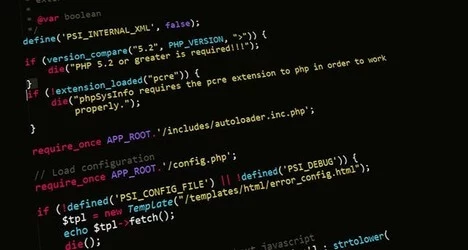Blockchain and HR: Is Disruption Finally Here?
Add bookmark
As the pandemic speeds up ideas about the future of work, one that is getting less attention than usual is blockchain. Widely known as the digital ledger used to track bitcoin transactions, blockchain has a range of uses for keeping information secure.
For HR, this is as data rich of a moment as we’ve ever seen, but with that comes substantial risk. Last week’s news of two separate cases in which HR managers redirected funds from employee payments into personal bank accounts sparks new questions about how blockchain can be used as a more secure method for everything from employee pay to protecting personal information.
Blockchain as a technology is seeing greater investment, with technology, media and telecom companies most prepared to invest at least $5 million in it this year, according to a report from Deloitte. As it gains popularity in life sciences, healthcare, energy and other industries, it begs the question of what kind of impact can blockchain have for companies looking to implement its use in HR functions.
Compensation and Benefits
The most obvious benefit to HR is the security of compensation transactions as only the sender and recipient can see the information. When it comes to contractors and gig economy workers, blockchain opens up the possibility of paying in cryptocurrency, helping to avoid complications with currency exchange rates and banking in foreign markets. It also holds a great deal of potential in eliminating time consuming manual tasks related to payroll systems.
Another benefit is that it can automate tax processes to maintain compliance with regulations with ease and keep cleaner records that traditional processes. This can limit the risk of an audit and ease the process if one does occur as HR can share tax records with auditors in a secure manner almost instantly, eliminating costly document collection and verification processes.
Additionally, employees sensitive information related to benefits is more thoroughly secured and access to benefit information can be provided outside of standard company systems without compromising security.
Recruiting
Hiring new employees presents a variety of challenges when it comes to vetting candidates. Verifying CVs and tracking down references can be time consuming and difficult. Blockchain, however, does offer the possibility of creating employee record systems that are secure and ensure a higher level of accuracy than highly embellished CVs.
By allowing a potential employer access to their blockchain driven employer history, candidates can submit information with a higher degree of confidence that their information is secure and that other candidates will not be able to fraudulently misrepresent themselves to get ahead in the process.
The hurdle here continues to be complexity due to GDPR, which mandates that a person be able to change their personal information at any time. From the employer side, there are concerns about what goes into the record. Proprietary information for example is not something employers will want shared. While it has some benefits for recruiting, the draw backs remain substantial, however they are being worked on.
Japanese HR company, the Persol Group, is working in conjunction with electronics giant NEC to develop a blockchain powered recruiting app that would help streamline recruitment processes, but it’s still in the early stages as the developers are still in the proof-of-concept phase.
Contract Management
In the case of contractors and gig economy workers, getting their pay almost instantly is becoming more of an expectation than a benefit. Blockchain can play a key part in the automation of payment processes. This requires the establishment of criteria that must be met for pay to be earned. Once all of the criteria are met – e.g. a graphic designer’s work is published – payment can be disbursed automatically.
Protecting Employee Data
Whether it’s health insurance records, bank account numbers, retirement accounts or salary figures, HR is home to a great deal of sensitive employee information. Protecting that information is essential to maintaining trust in HR and the company. By putting much of those transactions into blockchain, the information is decentralized, meaning bad actors can’t access large amounts of employee data in a single location and any changes to it must be verified.






















